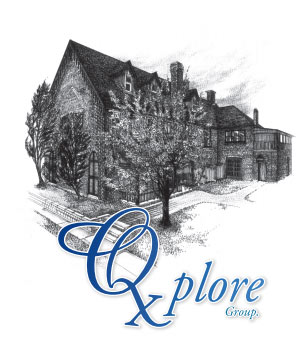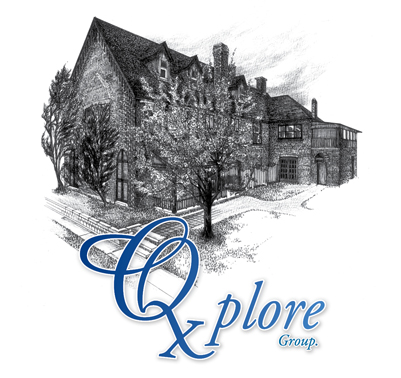Winter 2016

EMDR: Effective Treatment for Post Traumatic Stress Disorder
Patsy De Courcy-Ireland, M.S.W., RSW
Money is ENERGY! It’s your ‘Work’ Energy exchagne For ‘Paycheques’ money!
Sandra Valks, CLU, DTM
Workplace Conflict
Gail Lynch, BPE, HRMC
WELCOME TO OUR WINTER 2016 NEWSLETTER
Welcome to our Winter 2016 Newsletter. Your employer, along with other proactive companies and organizations, is focusing on the well being of employees and the organization by providing an employee assistance program for personal, family, and work related issues. In this issue we have articles about Workplace Conflict, Treatment of PTSD, and Money Management.Virginia Palmer, Clinical Coordinator
EMDR: Effective Treatment for Post Traumatic Stress Disorder
Patsy De Courcy-Ireland, M.S.W., RSW

QUINTE COUNSELLING SERVICES INC.

Patsy De Courcy-Ireland, M.S.W is a Registered Social Worker and a Member of the Association of Traumatic Stress Specialists. She has been trained in EMDR, Thought Field Therapy, and Traumatic Incident Reduction. Patsy works with individuals of all ages in the areas of trauma, crisis intervention, stress management, and other issues, and provides therapy services through the EAP.
Money is ENERGY! It’s your ‘work’ energy exchanged for ‘paycheques’ money!
Sandra Valks, CLU, DTM
Sandra Valks is a Chartered Life Underwriter who has been providing financial services since 1982 and who provides Financial Counselling through the Employee Assistance Program
What Kinds of Services are Provided Through the EAP?
Separation Counselling Counselling for Work Issues Grief and Bereavement Counselling Addiction Assessment and Counselling Chronic Pain Management Counselling for Seniors’ Placement Issues Referral Co-ordination Financial Counselling Individual Solution Focused Therapy Marriage and Relationship Counselling Family Therapy Play Therapy Counselling for Child and Adolescent Issues Counselling for Survivors of Sexual Abuse Trauma Debriefing Assertiveness Training Stress Management Family Life Education Weight Management CounsellingQUINTE COUNSELLING SERVICES INC.

WORKPLACE CONFLICT
Gail Lynch, BPE, HRMC

“A state of discord caused by actual or perceived opposition of needs, values and interests between people working together” — Wikipedia
It has been estimated that managers spend at least 25% of their time resolving workplace conflicts. A recent study done among 9 countries found that on the average staff spend 2.1 hours per week dealing with workplace conflict. That is 1 day per month and a total of 12 days per year! The top causes of workplace conflict are; personality clashes; stress; workload pressures; poor leadership from the top; lack of openness and honesty; poor line management; and lack of clarity or role and accountabilities. Conflict is unavoidable and is a regular part of doing business. Conflict rarely resolves itself, in fact, conflict normally escalates if not dealt with promptly and properly. Unresolved conflict results in lost productivity, increased absenteeism/presenteeism, loss of creativity and barriers to collaboration.“The void created by the failure to communicate is soon filled with poison, drivel and misrepresentation” — C. Northcote Parkinson
Handling and resolving workplace conflicts that arise in the workplace is one of the biggest challenges managers and employees face. There are typically two responses to conflict; run away (most often chosen) or battle it out. These responses are rarely if ever effective in resolving the conflict to the satisfaction of all parties involved. There are a number of approaches that can be taken to effectively resolve workplace conflict. Communication, style and approach are dependent on the specifics of the situation and the people involved in the conflict.Gail Lynch is a Human Resource specialist with over 35 years experience working with 5 different Ministries of the Ontario Government. Her areas of expertise include Mediation and Arbitration, Labour Relations, Health and Safety, Planning, Recruitment, Injury and Illness Management, and Workplace Discrimination and Harassment Prevention.
Did you know…
→No one at your place of employment will know that you have used your EAP unless you tell them?
→Counselling is provided for a broad range of services, including marital and relationship; parenting; stress; separation/divorce trauma; workplace; and personal issues?
→Counsellors can help you access community resources and support groups?
→A comprehensive description of the services provided through your EAP is available through your EAP brochure or on our website at www.qxplore.com?
QUINTE COUNSELLING SERVICES INC.



***PSYCHOEDUCATIONAL ASSESSMENT SERVICES***
*transitioning to college or university?
*not achieving at the expected level?
*Mathematics, Reading, Spelling, or Writing skills?
*paying attention and/or concentrating?
*managing emotions and getting along with others?
A Psychoeducational Assessment by Quinte Assessment and Treatment Group Inc. can identify causes of your child’s problems and recommend what can help.
Donna Boulton, M.Sc., C.Psych.; Shara Highgate., Ph.D., C.Psych.; Eva Mourelatos, M.A.; Shannon Mossip, M.A., C.Psych.; Mohammad Nikkhou, Ph.D., C.Psych.; Anita Ramani, Ph.D. BCBA-D, C.Psych.
Quinte Counselling Services Inc.
208 John Street Belleville, Ontario, K8N 3G1 Tel: 613-966-4262 Fax: 613-966-4265 Toll Free: 1-800-527-7793 qcs@qxplore.com www.qxplore.com
QUINTE COUNSELLING SERVICES INC.

